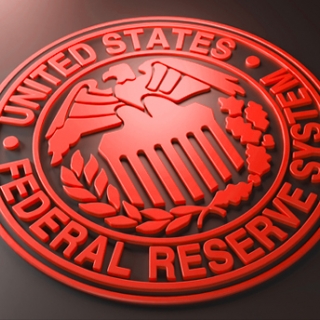


New York Federal Reserve President John Williams said on Wednesday central banks must "respond relatively strongly" when inflation begins to deviate from their target.
Given high uncertainty around the economic impact of U.S. tariffs and trade policy, central banks should focus on avoiding taking steps where the "cost of getting it wrong far outweighs the benefits," rather than aiming for the perfect solution to the problem, he said.
Among the costly risks central banks must avoid are to allow inflation expectations to deviate from their targets, Williams said in a fireside chat with BOJ Deputy Governor Ryozo Himino at the central bank's conference held in Tokyo.
"You want to avoid inflation becoming highly persistent because that could become permanent," Williams said. "And the way to do that is to respond relatively strongly" when inflation begins to deviate from the central bank's target, he added.
Williams said shocks typically do not have long-lasting effects on inflation as long as inflation expectations are well anchored. But he warned there was always uncertainty on how supply-side shocks, such as those caused by the COVID-19 pandemic, could affect public perceptions on future price moves.
"Uncertainty has risen pretty significantly," he said "We have to be very aware that inflation expectations could shift in any way that could be detrimental."
Given such uncertainties, central banks must strive to not just anchor long-term inflation expectations, but ensure shorter-term expectations are "well behaved" so that public perceptions of future price moves emerge back towards central bank targets "within several years," Williams said.
U.S. President Donald Trump's sweeping tariffs and erratic trade policies have complicated central bankers' task of keeping inflationary pressure in check, without cooling too much economies already facing the damage from higher levies.
The Fed has kept its policy rate unchanged at 4.25%-4.50% since December, as officials pause for more clarity on the economic and price impact of Trump's tariffs.
Policymakers are also having to grapple with volatile market moves caused by Trump's on-and-off comments on U.S. trade negotiations with other countries.
While global financial markets experienced "huge shocks" and volatility in April after Trump's announcement of sweeping reciprocal tariffs, they did not see a "dissolution," Williams said.
"One of the things you definitely saw in April was a lot of flow between buyers and sellers," which was a sign markets were functioning, he added.
The level of reserves in the U.S. is "clearly abundant" judging by many metrics the New York Fed monitors, and serves as a buffer against unforeseen shocks, Williams said.
"When you get big shocks and you're seeing unanticipated shocks, it's really nice that there's a buffer" that absorb the market ramifications, he added.
Source: Investing .com
Former U.S. President Donald Trump threatened to impose tariffs on members of the BRICS group of nations on Friday, warning the alliance would quickly collapse if it ever becomes a significant economi...
Federal Reserve Governor Chris Waller, an advocate for an immediate interest rate cut, said on Friday he would accept the job as head of the U.S. central bank if asked by President Donald Trump, but s...
The case for a U.S. interest rate cut remains unresolved as Federal Reserve officials head into their policy meeting later this month, with data showing fresh signs of higher inflation and President D...
Federal Reserve Governor Christopher Waller said concerns about private-sector hiring have fueled his call for the central bank to cut interest rates this month. "The private sector is not performing ...
Federal Reserve Chairman Jerome Powell, in a letter on Thursday, rebutted criticism leveled at the central bank by a top White House official regarding the $2.5 billion renovation project. "We take se...
The U.S. dollar slipped against the euro on Friday but held on to weekly gains, as investors weighed expected Federal Reserve policy amid signs that tariffs may be starting to increase some inflation pressures and as U.S. President Donald Trump...
Former U.S. President Donald Trump threatened to impose tariffs on members of the BRICS group of nations on Friday, warning the alliance would quickly collapse if it ever becomes a significant economic force. "When I heard about this group from...
Stocks in the US closed near the flatline on Friday as investors weighed President Trump's push for higher tariffs on the European Union against strong economic data and corporate earnings. The S&P 500 and Nasdaq 100 finished mostly muted near...
 The Producer Price Index (PPI) for final demand in the US rose 2.3% annually in June, according to data published by the US Bureau of Labor...
The Producer Price Index (PPI) for final demand in the US rose 2.3% annually in June, according to data published by the US Bureau of Labor...
 The U.S. central bank will probably need to leave interest rates where they are for a while longer to ensure inflation stays low in the face of...
The U.S. central bank will probably need to leave interest rates where they are for a while longer to ensure inflation stays low in the face of...
 Unemployment claims fell 7,000 to 221,000 in the week ending July 12, compared with the median estimate of 233,000, according to Labor Department...
Unemployment claims fell 7,000 to 221,000 in the week ending July 12, compared with the median estimate of 233,000, according to Labor Department...
 Asia-Pacific markets fell after U.S. President Donald Trump said Tuesday that he had struck a preliminary trade agreement with Indonesia, which will...
Asia-Pacific markets fell after U.S. President Donald Trump said Tuesday that he had struck a preliminary trade agreement with Indonesia, which will...